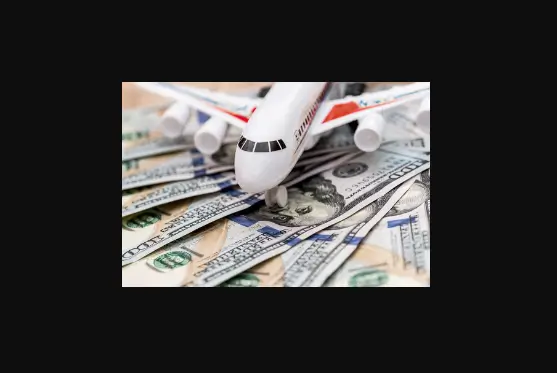What is Aviation Fuel Tax?
Why Your Plane Ticket Doesn’t Include Fuel Tax (But Maybe Soon Will!)
Unleash the Mystery of Flying Cheap: Why are plane tickets sometimes shockingly lower than train fares?
The secret lies in a hidden cost – fuel tax. While you pay it at the gas station and on your train ticket, it mysteriously vanishes when you take to the skies.
But this tax-free status, a relic of the past, might be facing turbulence.
Fuel Tax Explained: Governments levy this tax on transportation fuels like gasoline and diesel, with rates varying worldwide. As a car owner, you likely feel the pinch at the pump – in the EU, it’s $1.76 per gallon of diesel! Funds generated can go towards roads, railways, or greener public transport, though results vary.
Flying High, Tax-Free: Unlike road and rail fuels, kerosene, the juice for airplanes, enjoys international tax exemption. This dates back to 1944, when a UN treaty aimed to protect a fledgling aviation industry by barring fuel tax on landing.
Read More: Qatar Airway CEO: Aviation to Miss Zero Carbon Emission Milestone of 2050
The Loophole’s Reach: This exemption often means zero fuel tax at all. Even the EU bans it on international flights within the bloc, though domestic flights could be taxed (no one has taken the plunge yet).
Germany’s attempt last year, met with industry opposition, ended up as a ticket tax instead.
The Future of Flight Taxes: Environmental concerns are putting the spotlight on this aviation privilege.
With flying being the most carbon-intensive travel mode, calls for fuel taxes are gaining traction. Will airlines face turbulence on the tax front? Buckle up, the flight path toward sustainable travel is changing!
Read More: Passengers to Pay Extra Fee on Domestic Flights in Pakistan
Can Taxing Flights Clip Aviation’s Carbon Footprint?
Fuel for Thought: The aviation industry emits 2% of global CO2, and it’s only expected to soar. Will taxing air travel be the solution, or just turbulence for tourism?
Taxing Takeoff: Proponents argue fuel taxes could:
- Curb Demand: Higher ticket prices might encourage us to think twice before jetting off, slowing emissions growth.
- Fund Green Solutions: Tax revenue could be invested in cleaner fuels and technologies like zero-emission planes.
- Target Luxury Travel: A tax focused on frequent flyers (who contribute most emissions) could shift polluter costs.
Headwinds Ahead:
- Price Pain: Ticket price hikes could impact travel affordability and tourism industries.
- Political Resistance: Airlines and tourism-dependent economies may oppose the tax.
- Global Coordination: Implementing a unified tax across countries presents a challenge.
Taking Flight towards Action:
Despite the hurdles, momentum is building:
- US Proposals: Legislators are pushing for fuel taxes on private jets, major polluters in the skies.
- EU Initiative: The EU’s climate chief advocates for a global kerosene tax.
The Bottom Line: While a fuel tax alone won’t solve aviation’s climate problem, it could be a crucial step toward a sustainable future.
By promoting greener solutions and shifting emissions responsibility, it could spark a necessary change in flight patterns.
Note: The information above might not be accepted 100%. Please verify from your own sources. We will not be responsible for any kind of loss due to our content.
For more news, please visit Munafa Marketing.




